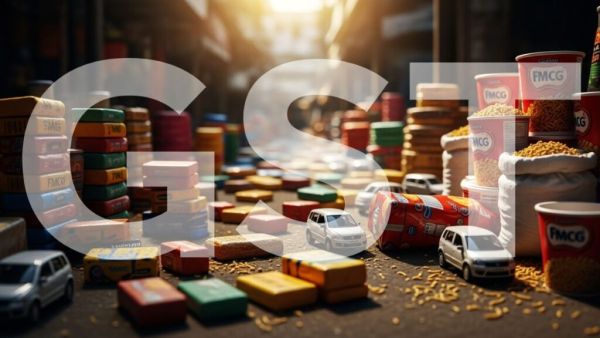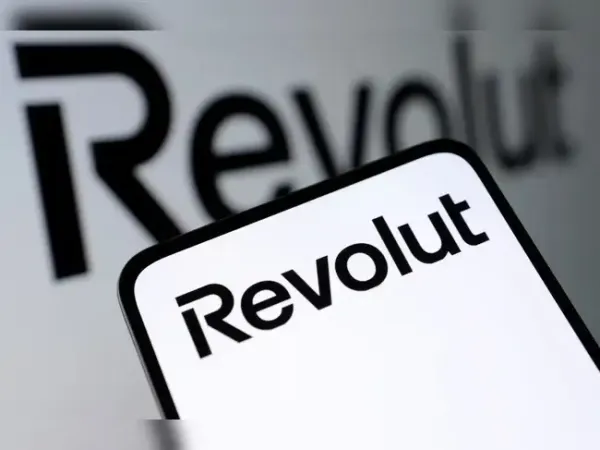
If you opened your newspaper over the last few days, you would have seen pages full of advertisements from companies highlighting new prices for your favourite products—from a pack of toothpaste to biscuits to small cars and more.
The government had announced a revamp of the Goods and Services Tax (GST), a move that will see the number of slabs being slashed to essentially two: 5 per cent, 18 per cent, and the higher 40 per cent slab on few luxury and sin goods, effective Monday, September 22.
ALSO READ | India’s CPI inflation remains benign, but will heavy rains and floods drive up food prices?
With the GST revamp, most essential products will now carry 0 or 5 per cent GST, compared with 12-18 per cent earlier. Small cars and two-wheelers will move into the 18 per cent tax slab from 28 per cent plus cess earlier. This move, Finance Minister Nirmala Sitharaman said this week, is expected to inject Rs 2 lakh crores into the economy and leave more money in the hands of the people.
Most companies—whether it’s fast-moving consumer goods companies, ice-cream makers, or automotive manufacturers—have already announced plans to fully pass through the GST cuts to consumers.
Over the past few quarters, sluggish demand in urban markets has been a key speed bump for consumer goods makers. They are hoping that this GST reduction, apart from the income tax cuts announced earlier in the Budget, will boost consumption this festive season.
Most automakers had rolled out offers over the past couple of weeks, where consumers could book vehicles at new prices, with deliveries scheduled after September 22.
How Maruti Suzuki plans to woo consumers back
Maruti Suzuki, the largest passenger vehicle maker in the country, is expected to reap big benefits from the GST cuts, given its wide small car (sub-4 metre) portfolio. In recent years, small car sales have taken a beating. While a shift in consumer preferences towards bigger sports utility vehicles has been a key reason, rising prices of small cars due to regulatory changes and input costs has also been a major reason behind slowing demand.
The company is going all out to woo small car consumers back. According to Yogesh Aggarwal, head of research, India, at HSBC, Maruti Suzuki has taken price cuts of 11-21 per cent—more than the GST benefit of 7-8 per cent—to revive demand.
Interactions with dealers indicate strong enquiry levels for entry-level cars, with double-digit sales growth expected in the festive season, he noted.
“Enquiries have increased significantly, both online and walk-in, across segments by 15-20 per cent, and more for entry-level cars in tier-1 cities. The share of first-time buyers increased by 5-7 per cent in total bookings so far. The premium hatchback segment is also seeing a decent uptick,” said Aggarwal.
Overall, Aggarwal is now expecting passenger vehicles sales to grow in double-digits in the festive season, compared with single-digit growth seen prior to the GST cuts.
Entry-level two-wheelers, which had also seen demand slow down in recent years, are seeing a healthy uptick in enquiry levels. The GST cuts coupled with lower lending rates are expected to speed up demand.
ALSO READ | After Hero, TVS and Royal Enfield, Honda Motorcycle & Scooter India announces price cuts to two-wheelers up to 350cc: Up to Rs 18,800 savings!
According to Pramod Amthe of InCred Equities, the GST rate cut and cess withdrawal is the biggest stimulus in recent history of the auto sector and may trigger a cyclical recovery over the next 2-3 years.
“High demand elasticity and car demand recovery from GST rate cut will be best captured by Maruti Suzuki, leading to market share gains and pricing power. Tata Motors will benefit big on a fresh truck demand upcycle, while the car division’s participation in demand recovery will be gradual,” said Amthe.
He has raised domestic auto industry volume forecasts by a sharp 300 basis points (3 per cent) for the current financial year ending March 2026 to 11 per cent, and 500 basis points to 15 per cent for 2026-27.
Why FMCG firms celebrate the move
The FMCG companies too are likely to see a bigger celebration this festive season.
“Among food and beverages, major price drop is expected for prepared meals and snacks, oils and fats, due to drop in rates of butter and vanaspati. For cereals and products, drop in prices of bread, noodles etc. have contributed to its decline (in inflation). All these are daily consumables. Hence, it will give a major thrust to real consumption demand and in turn to investment,” said economists at the Bank of Baroda.
The tax cuts on essentials should improve purchasing power, especially for low-middle income segments, according to Dharmakirti Joshi, chief economist at Crisil.
In categories like clothing, footwear and two-wheelers, GST rates have been cut for only lower-value items, which compliments the income-tax relief for this segment and will support demand, he said.
How the pass-through of GST rate cuts affects consumer benefits
Most importantly, the final impact on consumption will depend on the extent of the pass-through in GST rate cut to consumers.
“Lower taxes on consumption are bound to have a one-off effect on retail prices. But, the extent of downside and the speed at which it is passed on will, similar to the consumption impact, depend on the nature of passthrough by producers,” said Joshi.
“Encouragingly, most of the rate cuts are concentrated on essential goods and some discretionary items typically consumed by the middle class. Therefore, if transmission is swift, it should enable faster passthrough, ease inflationary pressure and support household consumption, thereby strengthening demand,” he pointed out.
Deepak Mutreja, the vice-president (sales and marketing) at Suzuki Motorcycle India has said they have passed on the complete benefits of the GST cuts on two-wheelers as well as spare parts, which will reduce the purchase as well as maintenance costs.
“Coming just ahead of the festive season, this move is expected to further uplift, customer sentiment, making our product range even more attractive, and give a strong push to demand in the two-wheeler market,” said Mutreja.
Consumer goods and dairy product makers too have announced price cuts across their portfolios. For instance, prices of Mother Dairy’s products like UHT milk to cheese and ghee will come down by around Rs 2-3, to as much as Rs 30.
ALSO READ | Why the GST cut to 0% on health and life insurance matters more to Indian health industry
“By easing the tax burden on staples like paneer, gheee, butter, and cheese, the government has made it possible for us to pass on the full benefit to our consumers,” said Brahmani Nara, executive director at Heritage Foods.
Dairy is central to every celebration and therefore the price cuts should bring cheer among consumers this festive season, he felt.
Companies have adopted a multi-channel approach to communicate the price changes—from social media announcements to in-store displays and transparent invoicing—to ensure consumers and trade partners are aware.
“This (GST) move makes indulgence more accessible and contributes to the larger growth story of India’s consumer economy,” noted Mohit Khattar, CEO, Gravis Foods, which operates the ice-cream chain Baskin Robbins in India.
Ultimately, how things turn out will depend on whether the consumers loosen their purse strings and by how much. This will eventually have a bearing on the overall festive season growth this time around.
-
Arturo Gatti Jr, son of boxing legend, dies at 17 under hauntingly similar circumstances like his father's. Cause of death revealed?

-
Ferrari goes electric with four-seat coupe 'Elettrica'

-
Spacetech startup OrbitAID wins Indo-Australian MAITRI grant, to deploy India’s first in-orbit refuelling interface

-
AI will never be a winner-takes-all market due to well-funded rivals: Sam Altman

-
British fintech Revolut to invest $670 million in India over five years, expand local operations
